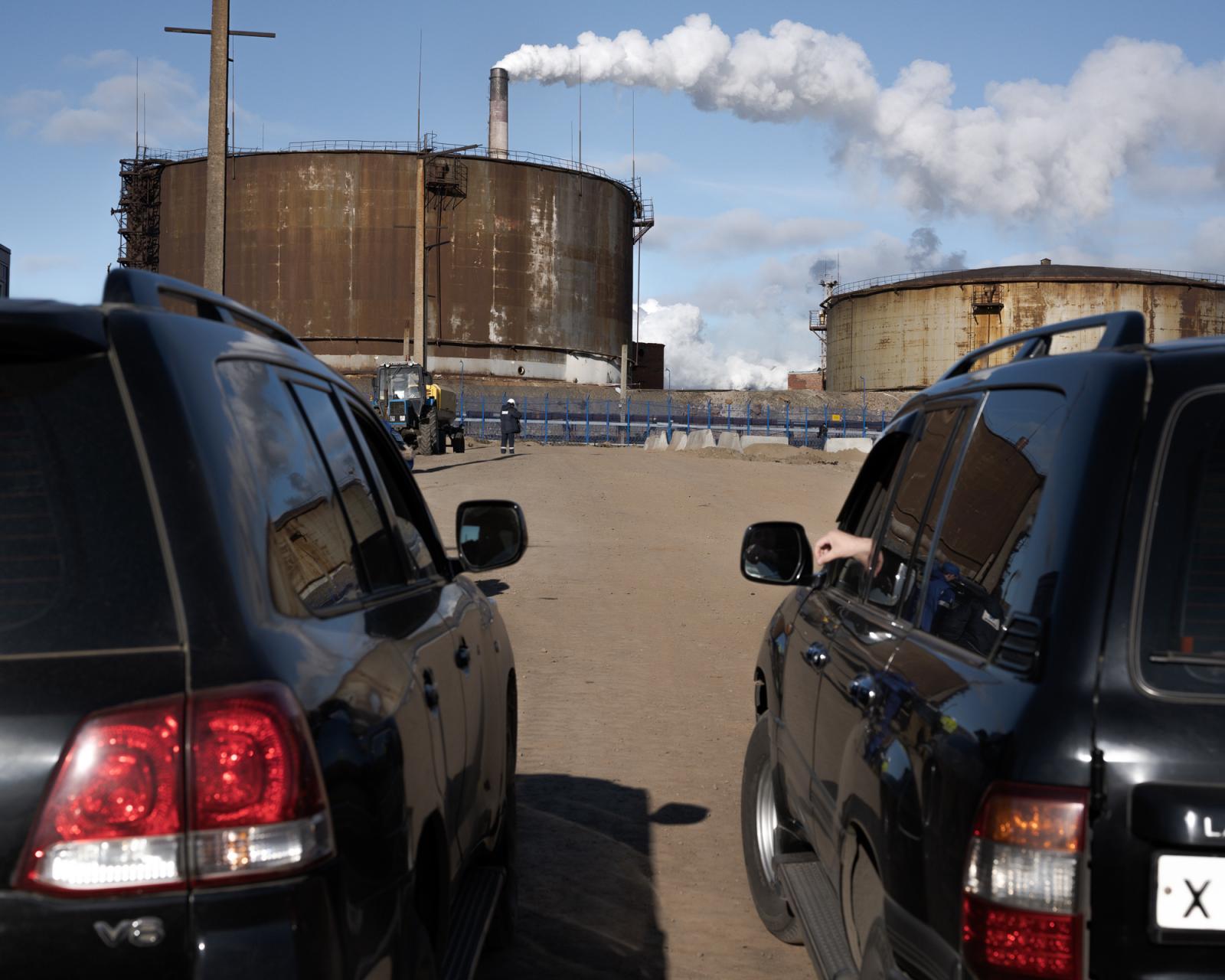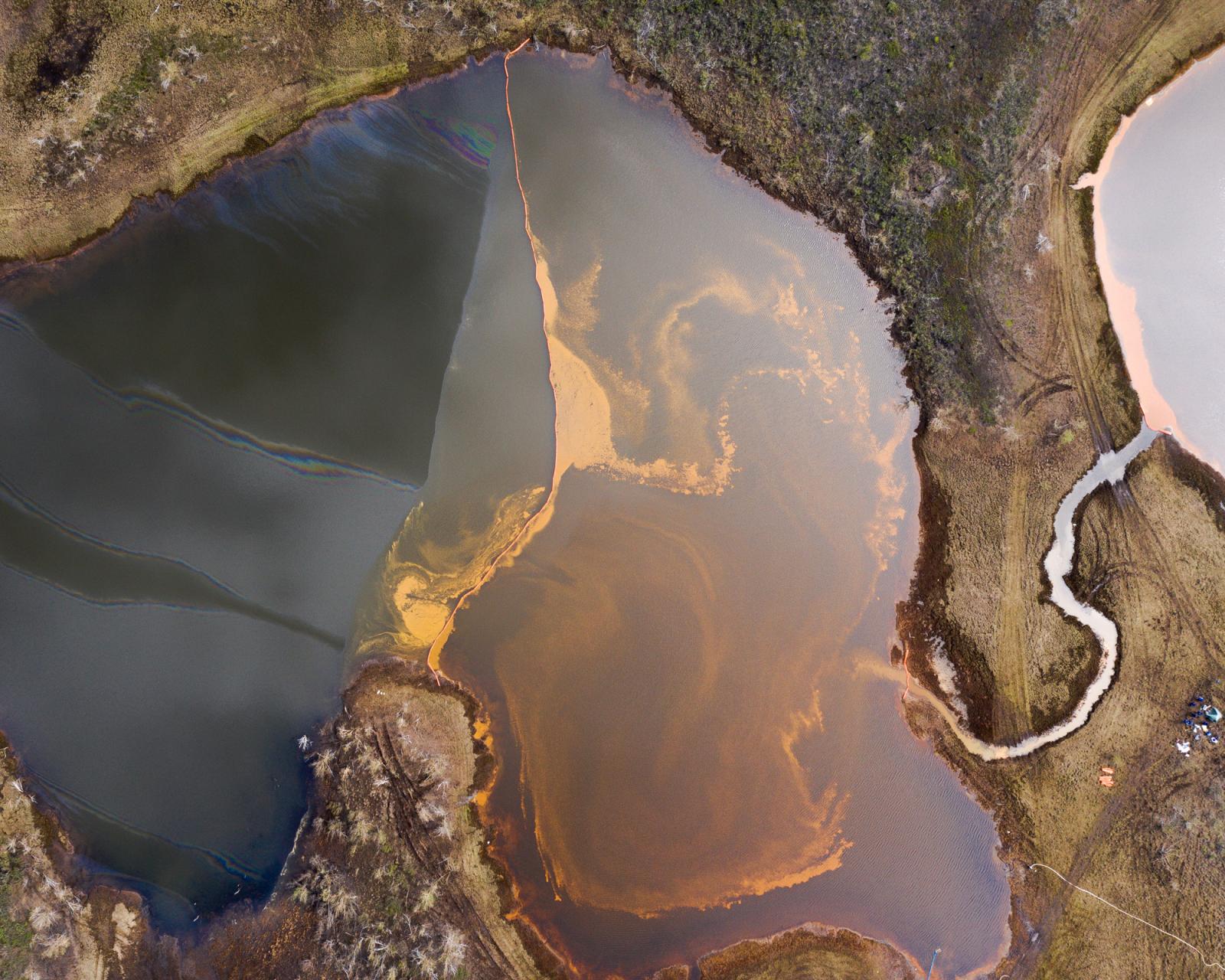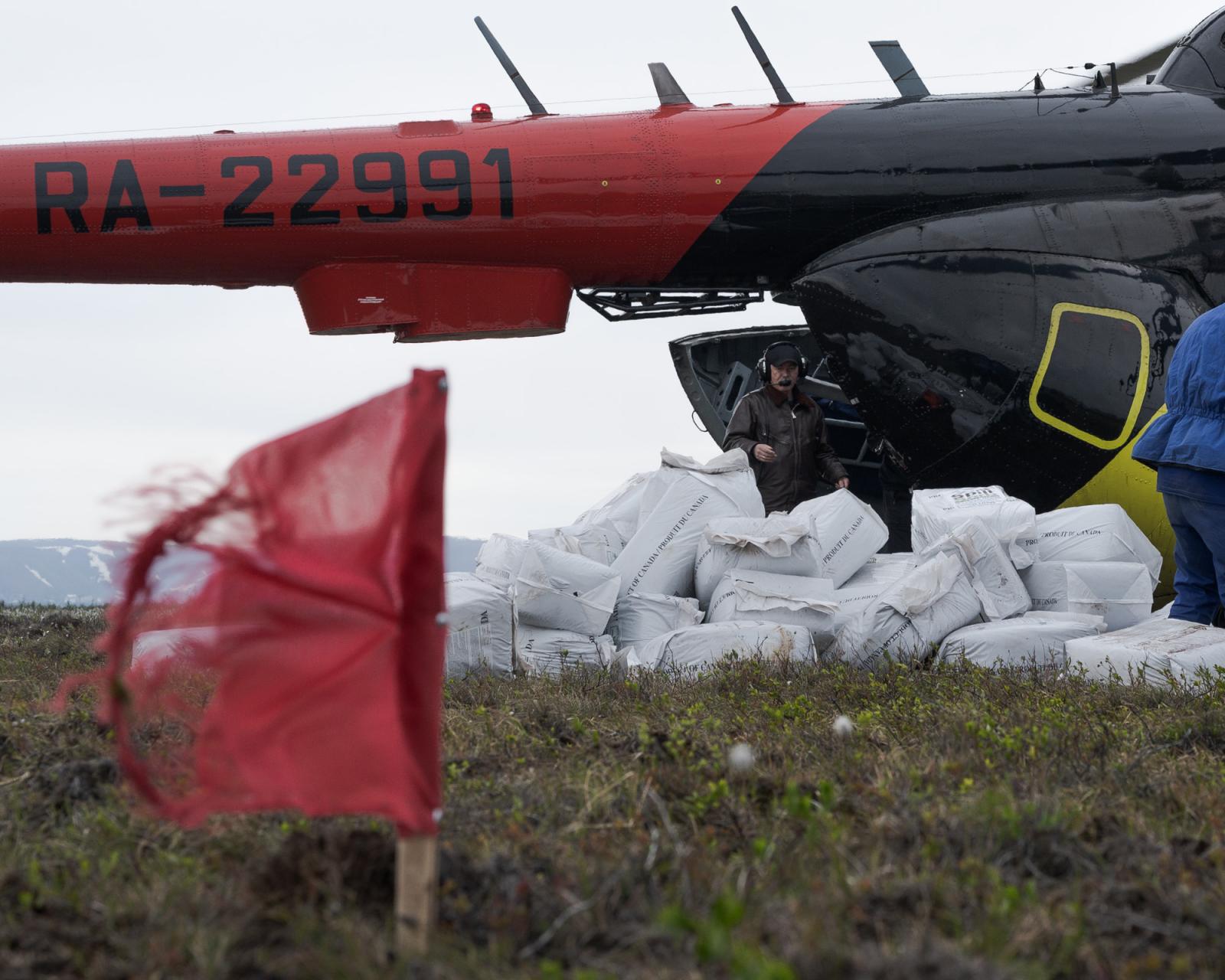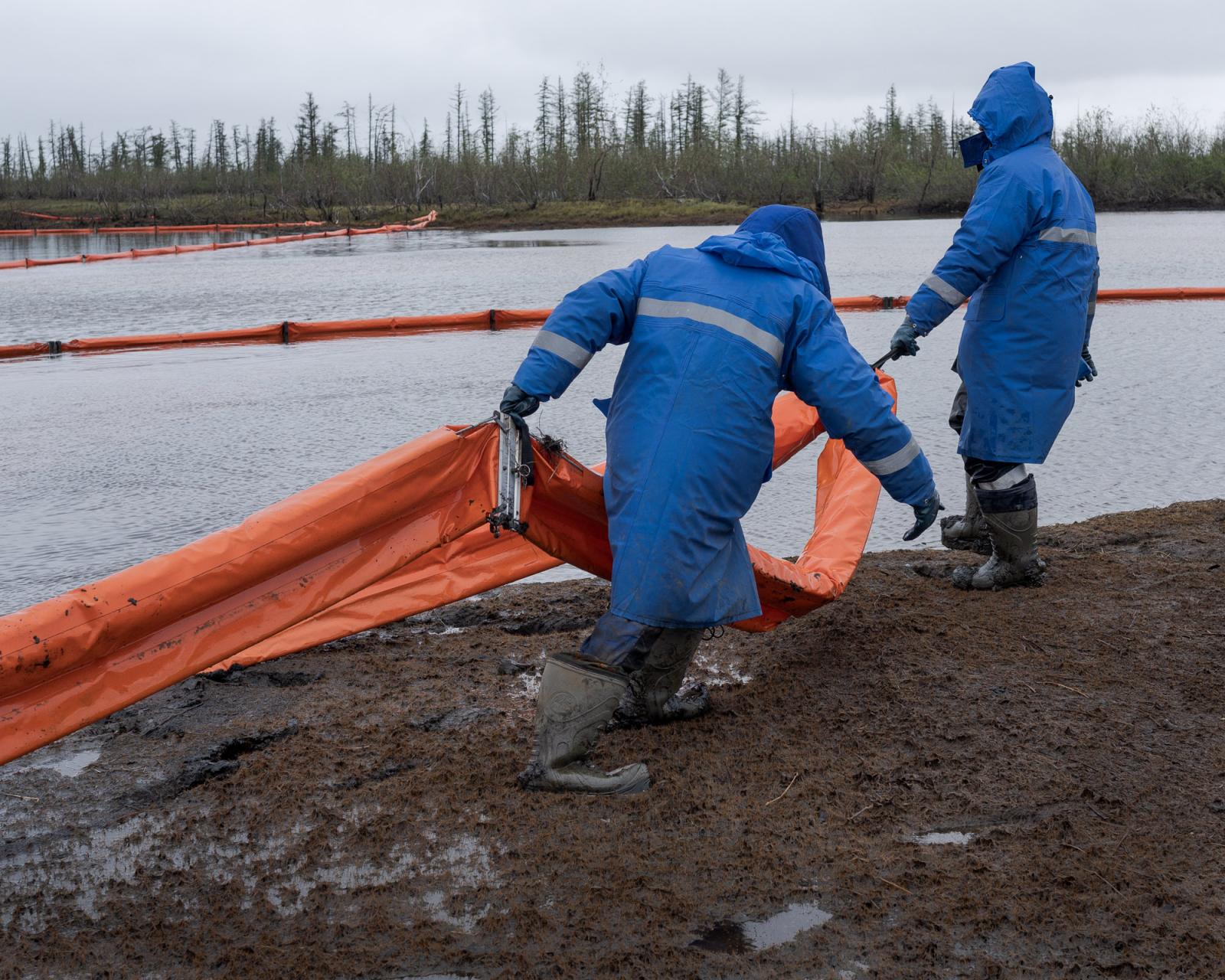Public Project
Norilsk Oil Spill
The Norilsk diesel oil spill is an ongoing industrial disaster near Norilsk, Krasnoyarsk Krai, Russia and the incident has been described as the second-largest oil spill in modern Russian history, after the 1994 Komi pipeline spill.
It began on 29 May 2020 when a fuel storage tank at Norilsk-Taimyr Energy's Thermal Power Plant No. 3 (owned by Nornickel) failed, flooding local rivers with up to 17,500 tonnes of diesel oil. President Vladimir Putin declared a state emergency in early June and ordered MCHS (ministry of Emergency Situations), companies GazpromNeft, Transneft and MorRechSpass to help.
Up to 21,000 cubic metres (17,500 tonnes) of diesel oil spilled on to the ground and into local rivers, affecting an immediate area of 18 hectares (44 acres), the nearby Daldykan River, a tributary of the Ambarnaya River, and contaminating an area of 350 square kilometres (140 square miles). Clean-up efforts were anticipated to be difficult as there are no roads and the rivers are too shallow for boats and barges. It was estimated the immediate cost of emergency relief activities would be 10 billion roubles (US$146 million), with a total clean-up cost of 100 billion roubles (US$1.5 billion), which would take five to ten years; Norilsk Nickel is to pay the costs.
It began on 29 May 2020 when a fuel storage tank at Norilsk-Taimyr Energy's Thermal Power Plant No. 3 (owned by Nornickel) failed, flooding local rivers with up to 17,500 tonnes of diesel oil. President Vladimir Putin declared a state emergency in early June and ordered MCHS (ministry of Emergency Situations), companies GazpromNeft, Transneft and MorRechSpass to help.
Up to 21,000 cubic metres (17,500 tonnes) of diesel oil spilled on to the ground and into local rivers, affecting an immediate area of 18 hectares (44 acres), the nearby Daldykan River, a tributary of the Ambarnaya River, and contaminating an area of 350 square kilometres (140 square miles). Clean-up efforts were anticipated to be difficult as there are no roads and the rivers are too shallow for boats and barges. It was estimated the immediate cost of emergency relief activities would be 10 billion roubles (US$146 million), with a total clean-up cost of 100 billion roubles (US$1.5 billion), which would take five to ten years; Norilsk Nickel is to pay the costs.
4,327



















